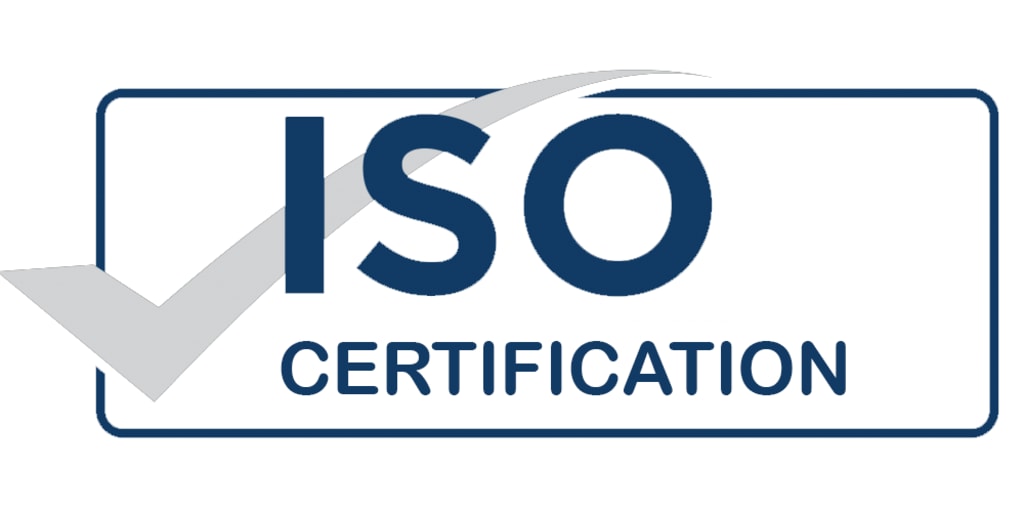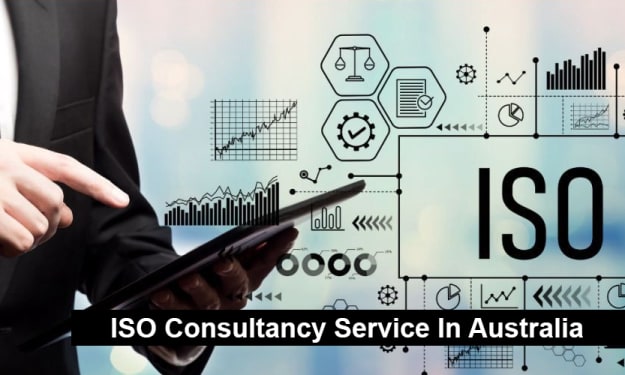What is ISO certification? And Why Does it Matter?
What is ISO certification?

For establishing trust and credibility among clients, customers, and business partners, companies in an international marketplace take
Support of the International Organization for Standardization Certification and short as ISO. It provides quality assurance and designated validation to the consumers, clients, and other businesses that an organization is reliable to partner with.
ISO certification can provide confidence and optimize an organization's business practices to make third parties interested in them. In this article, we will talk about ISO certification in detail. We will also help you understand with a step-by-step guide on getting a particular ISO certificate.
Understanding ISO
A business to be known as credential needs specific validation to build the trust and confidence of a third party, including customers and collaborators. An ISO certificate allows an organization to complete film business requirements relating to the quality process standards. Unlike government organizations, the ISO defines an organization's products and services, including their quality and efficiency.
The need for ISO started in the 20th century in London when International delegates came forward to create a new standardization for global organizations. As of today, ISO has around 23,000 standards published in approx 164 countries, and the companies prove their quality standards to the world to gain or earn an ISO certification.
The ISO sets valuable standards in international trade to fulfill the strict requirements of the organizations concerning goods. ISO aims to increase safety and security in international trade by improving industrial welfare worldwide. You must note that the ISO does not perform the certification; instead, it happens through external bodies.
Some industries that require ISO certification to prove their credibility include health care, food safety, manufacturing, agriculture, technology, etc.
Types of ISO Certifications
1. ISO 9000. The most common ISO certification is ISO 9000. It is a standard grouping that helps companies prioritize customers and third parties by helping them meet their needs and ensuring quality management systems. It is the most basic certificate of all the ISO certifications.
2. ISO 9001. To fulfill standardized requirements, companies choose ISO 9001, which allows them to establish product conformance. The product is an umbrella term for all services, hardware, software, and material goods. Therefore, this certificate is related to the services provided by a company rather than the entity itself.
3. ISO 13485. Specifically made for the automotive industries, ISO 13485 certification outlines the quality standards for manufacturers and distributors in the automotive industry. This certificate provides quality and efficiency assurance helpful in international vehicle shipments.
4. ISO 14001. With conscious consumerism on the rise and changing habits of consumers, ISO 14001 certification is related to the environmental management system based on consumer opinions and the impact of corporations on the environment. This certificate allows the entities to measure and control their activities on nature and wildlife to have a less environmental impact.
Why do you need ISO certification?
ISO certification is proof that your business or organization abides by the standards confined by the ISO. It builds confidence in third parties and clients and supports companies' commitment to the business objectives that cover the production of goods and customer satisfaction.
How can an entity get ISO certified?
To participate in international trade, it is essential to get ISO certified as it adheres to trade agreements in different countries. In such cases, ISO 9001 is a crucial certification that helps them trade successfully. Given are some steps that will guide you to get ISO certified.
1. Development of a quality management system
Developing a quality management system or QMS is the first and essential step to gaining an ISO certification. What are your core business processes? Learn and understand them by working with managers and teams of different levels. Next, understand the ISO standards thoroughly and develop a QMS. Lastly, you will be required to document the procedures to distribute them at all business levels.
2. Implementation of the new quality management system
Your next step will be to monitor the progress made by initiating the quality management system. Ensure all the levels carry out the procedures outlined by the new documentation. If the procedures require new methodologies, train the staff to abide by them. Finally, review and assess the issues if they may arrive.
3. Scheduling of external audit
After some time, when all the problems have gotten a resolution and resolved, you will be required to schedule an audit with a certified body. At this stage, the auditor assesses the new quality management system and checks if it is abided by the employees at all levels. You must also remember that to compare the actual work conducted, an auditor can ask for formal documentation, so keep the documents ready.
4. Registration of the quality management system
A company can register its quality management system once it passes the inspection. For the registration, you must submit all the required documentation to the certifying party for the last review. Once the review is done, the certificate is handed over to the company. The standards are open to change. And that is why the ISO certification can be maintained if the QMS auditing is done every three years. After each audit, the company earns the recertification upon passing.
Conclusion
Jackson balances must be placed in a global market; otherwise, consistency and quality across the industries and Nations can be threatened. ISO maintenance at a level across industries to maintain their consistency and quality and provide an organization with a common ground to play rationally.
If you want to learn more about ISO 9001 consulting or are considering getting ISO 9001 certification in Australia, then feel free to contact the ISO 9001 consultants in Australia to learn in detail about the specific requirements and rules your organization must abide by to get eligible for the ISO certification.
About the Creator
Dave Verma
Hi, I'm Dave Varma, founder of PQAS. I have 35+ yrs industry experience in senior management roles. PQAS engaged for 23 yrs in assisting organizations in setting up and maintaining their management systems.






Comments
There are no comments for this story
Be the first to respond and start the conversation.